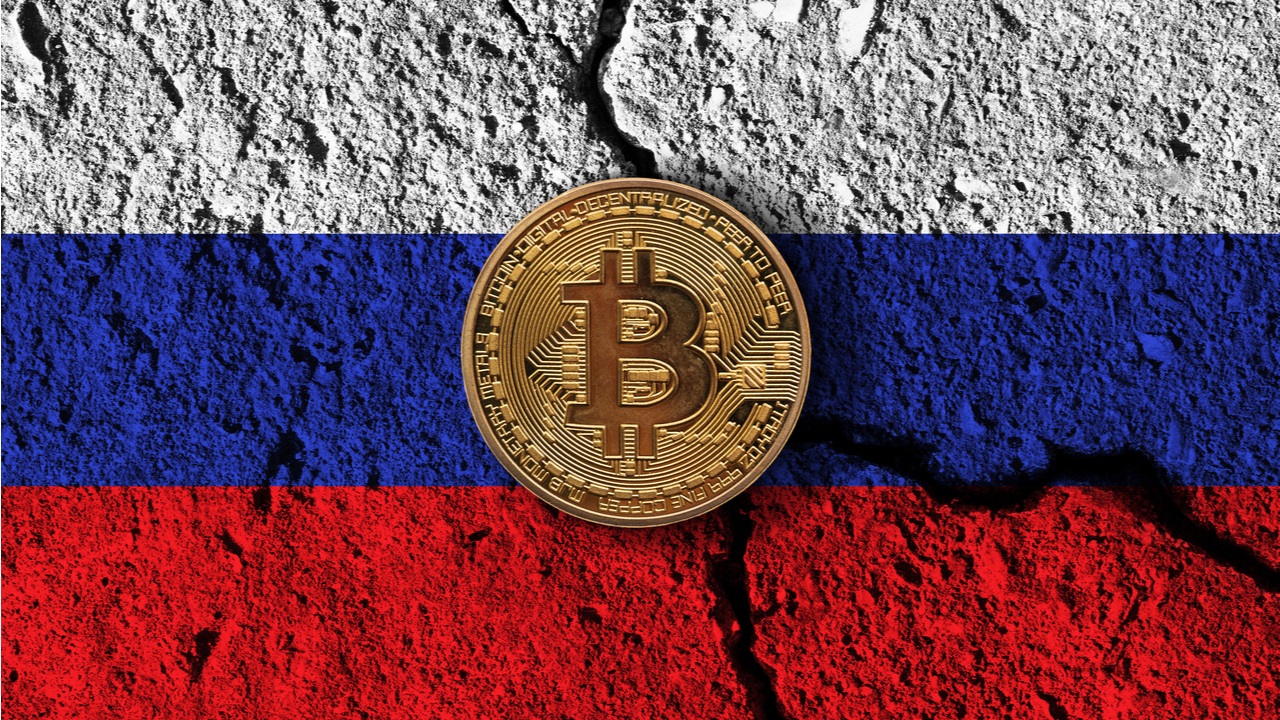Russia Unveils New Cryptocurrency Exchanges to Power Global Trade Amid Sanctions
23.08.2024 12:31 2 min. read Alexander Stefanov
Russia is moving forward with plans to establish two cryptocurrency exchanges, one in Moscow and another in St. Petersburg, in a bid to enhance its international trade capabilities.
These exchanges will operate under specific legal frameworks tailored to Russia’s economic and regulatory landscape. The Moscow platform may either integrate with the existing Moscow Exchange or function independently, while the St. Petersburg exchange will build on the foundation of the current St. Petersburg Currency Exchange.
This initiative is part of a broader strategy to increase Russia’s influence in the global crypto market and provide new financial tools amidst a challenging economic environment.
In tandem with these exchanges, Russia is also exploring the creation of a stablecoin tied to the Chinese yuan and the BRICS currency basket, a move aimed at diversifying its financial connections with key global economies.
However, the process of launching these stablecoins may encounter significant hurdles, particularly regarding their liquidity and convertibility. Experts like Oleg Ogienko of BitRiver have pointed out that, under Russian law, stablecoins are considered digital financial assets because they depend on an issuing entity to uphold their value.
Initially, the new exchanges and stablecoin will be accessible primarily to large businesses, with smaller enterprises and individual users gaining access at a later stage. While these developments could provide a much-needed boost to Russia’s cryptocurrency market, experts are cautious.
The transparency of blockchain technology might expose transactions to international scrutiny, potentially leading to sanctions. Additionally, concerns about trust in these government-backed platforms could drive users to continue relying on established international crypto exchanges instead.
-
1
FTX Pushes to Dismiss Billion-Dollar Claim from 3AC
23.06.2025 15:00 1 min. read -
2
BIS Slams Stablecoins, Calls Them Ill-Suited for Modern Monetary Systems
26.06.2025 9:00 1 min. read -
3
ARK Invest Cashes In on Circle Rally as Stock Soars Past $60B Valuation
24.06.2025 19:00 1 min. read -
4
FTX Pushes Back Against $1.5B Claim From Defunct Hedge Fund 3AC
23.06.2025 11:00 1 min. read -
5
Trump’s ‘Big, Beautiful Bill’ Approved: What It Means for Crypto Markets
04.07.2025 7:00 3 min. read
Coinbase Strengthens DeFi Push With Opyn Leadership Acquisition
Coinbase has taken a major step toward expanding its decentralized finance (DeFi) presence by bringing onboard the leadership team behind Opyn Markets, a prominent name in the DeFi derivatives space.
Grayscale Urges SEC to Allow Multi-Crypto ETF to Proceed
Grayscale Investments has called on the U.S. Securities and Exchange Commission (SEC) to allow the launch of its multi-crypto ETF—the Grayscale Digital Large Cap Fund—arguing that further delays violate statutory deadlines and harm investors.
Robinhood Launches Ethereum and Solana Staking for U.S. Users
Robinhood has officially introduced Ethereum (ETH) and Solana (SOL) staking services for its U.S. customers, offering a new way for users to earn rewards on their crypto holdings.
Binance CEO Reveals What’s Fueling the Next Global Crypto Boom
Binance CEO Richard Teng shared an optimistic outlook on the future of cryptocurrencies during an appearance on Mornings with Maria, highlighting growing global acceptance, regulatory progress, and strategic reserve integration.
-
1
FTX Pushes to Dismiss Billion-Dollar Claim from 3AC
23.06.2025 15:00 1 min. read -
2
BIS Slams Stablecoins, Calls Them Ill-Suited for Modern Monetary Systems
26.06.2025 9:00 1 min. read -
3
ARK Invest Cashes In on Circle Rally as Stock Soars Past $60B Valuation
24.06.2025 19:00 1 min. read -
4
FTX Pushes Back Against $1.5B Claim From Defunct Hedge Fund 3AC
23.06.2025 11:00 1 min. read -
5
Trump’s ‘Big, Beautiful Bill’ Approved: What It Means for Crypto Markets
04.07.2025 7:00 3 min. read


